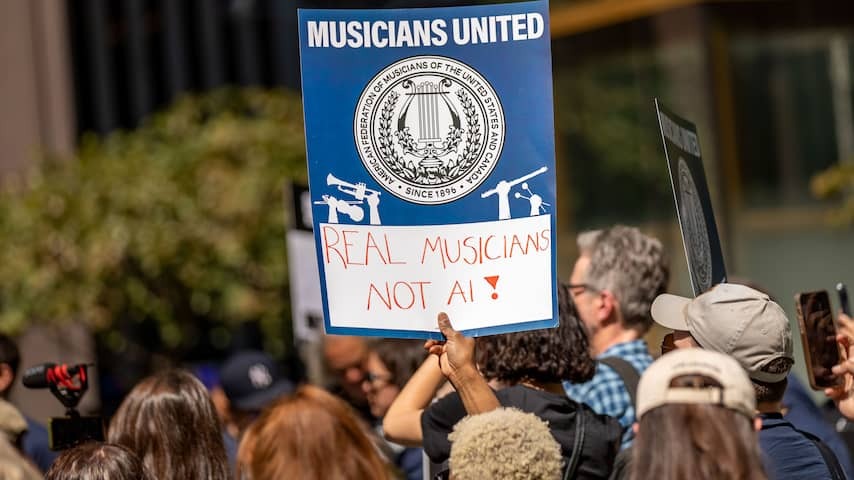
AI music services like Suno and Udio are being called to account in the United States because the music industry fears they are copying the work of artists and composers. The Dutch music world is grappling with the same problems but is taking a more cautious approach.
If you’ve ever asked an AI music program to create a Dutch song, it probably produced something that sounded familiar. The AI voices sometimes sound suspiciously like those of BLØF, Herman van Veen, K3, or Suzan & Freek.
The BREIN Foundation sent a summons to one of the services at the end of last year to request clarification. Because it is usually unclear with what data these types of AI models are precisely trained, it is difficult to prove that copyright is actually being infringed.
According to BREIN Foundation director Bastiaan van Ramshorst, it is “obviously unacceptable for such generative AI services to be able to create voice clones of Dutch artists.” He is clear about that: these practices must stop. When asked, he said that the copyright organization has put the file on hold itself. “We are awaiting international developments.”
In the United States, several record labels filed lawsuits against Udio and Suno last year for alleged copyright infringement. The record companies accuse the services of using their music to train AI models.
Universal Music Group, Warner Music Group, and Sony Music Entertainment are currently in talks with these companies to conclude licensing agreements. It should result in agreements stating how AI companies will pay artists and composers for the use of their work.
Negotiations have started
Music rights organizations BumaStemra and Sena tell NU.nl that many members are expressing concerns about the rise of these types of AI services. “Much of their work ends up on these types of platforms,” says Michiel Laan, commercial director of BumaStemra. “That is then used without us knowing exactly how. And without the owners being compensated for it.”
Sena reports that it will continue to collect fees for songs that are released for commercial purposes, even if they are made with AI applications. And BumaStemra is testing detection programs to recognize protected audio material in AI music.
The Dutch organizations are not planning to launch their own lawsuits against the AI services. “We don’t see any added value in that now compared to cases that are already running,” says Laan. “But we are using the pressure from the lawsuits abroad to increase the pressure on the services ourselves. It’s not that we are twiddling our thumbs in the meantime. There is already more willingness among services to negotiate payments and we are also noticing more willingness to make agreements about licenses.”
Fair compensation and the right to ‘no’
The music industry is not against the use of AI in music, the various parties emphasize. “The technology has a lot of potential, but a market must be created in which creativity continues to be rewarded,” says Laan. “We must be careful that a few people don’t get very rich from the creativity of others.”
Van Ramshorst also calls for fair compensation for creators. “And an artist or rights holder must always be able to indicate that their work may not be used for training.”
Sena, BumaStemra, and the NVPI, the trade association of the film and music industry, advise their members to make that position clear. “We advise rights holders to make a reservation in every possible way,” says Sena. “So that their repertoire cannot be used without explicit permission for the training of algorithms and AI applications in general.”
No grip on AI yet
So a lot is happening behind the scenes, but a solution for unlawful training with protected music and a ruling against the AI services are not yet available.
And many questions remain unanswered, says Van Ramshorst. “For example: to what extent should generative AI services be transparent about the material they are trained with? This is a very important point, because otherwise these providers can use other people’s work with impunity and without paying licenses.”
The highest courts will ultimately have to consider these types of questions. Until then, AI use in the music world remains a gray area. “But we are not pessimistic,” says Laan of BumaStemra. “The concerns are justified, but we owe it to our position to come out of this in a good way.”